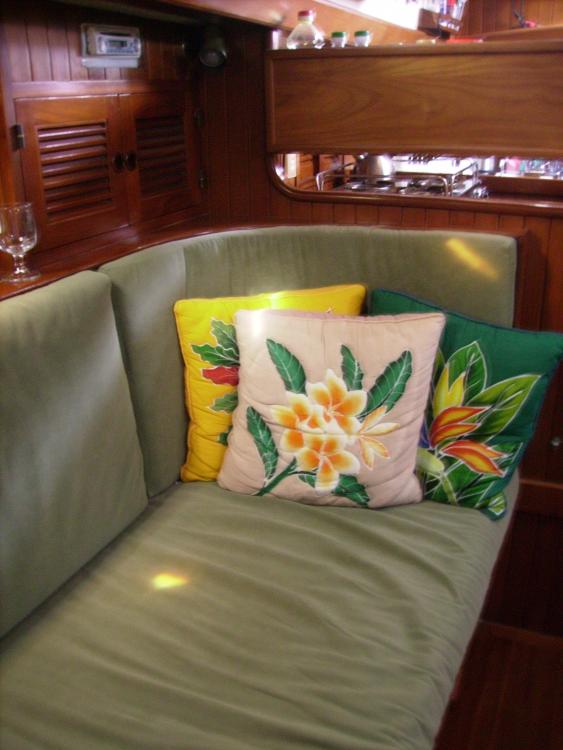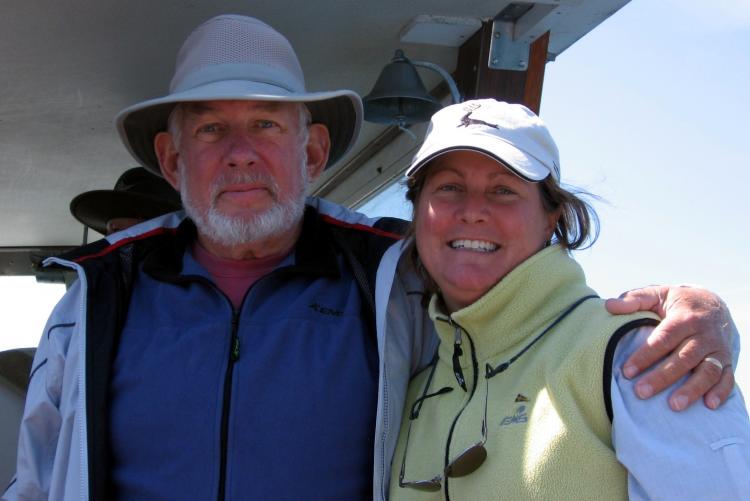Cruising Lessons on Close Quarters, Connection, Provisioning, & Riding Out the Storm
There is nothing like living on a sailboat with another person while cruising fulltime to prepare you for living through a pandemic and self-isolation ashore. For five years, my husband David and I lived aboard our 37-foot sailboat while sailing to the Caribbean, Mediterranean, and Black Seas. I recently found myself looking back at a July 2009 entry in our sailing blog of the experience we had arriving by sea to the African continent
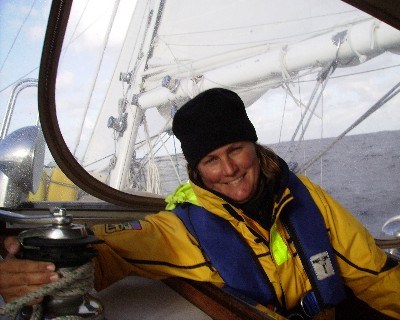 “We arrived in Tunisia today after a 118-mile overnight passage across the Strait of Sicily. Our arrival in [Sidi Bou Said] was a bit bizarre. After handing our docklines to the marina attendant and securing Gyatso, a Health Department inspector appeared at the bow and stuck a thermometer onto each of our foreheads. Dripping with sweat in the 90°+ midday sun, we were amused to learn that we passed the inspection! He handed us a brochure about the H1N1 virus and instructed us to report to his office if we became ill during our stay. We were very surprised by his professionalism and by the contrast with our nine-month experience in Italy, where we never saw anyone who cared about the global flu pandemic underway.”
“We arrived in Tunisia today after a 118-mile overnight passage across the Strait of Sicily. Our arrival in [Sidi Bou Said] was a bit bizarre. After handing our docklines to the marina attendant and securing Gyatso, a Health Department inspector appeared at the bow and stuck a thermometer onto each of our foreheads. Dripping with sweat in the 90°+ midday sun, we were amused to learn that we passed the inspection! He handed us a brochure about the H1N1 virus and instructed us to report to his office if we became ill during our stay. We were very surprised by his professionalism and by the contrast with our nine-month experience in Italy, where we never saw anyone who cared about the global flu pandemic underway.”
Even after this experience in the Med, I never imagined that long distance cruising would help me cope with living through a global pandemic like we are today. But here we are more than 10 years later, living ashore at our home in Annapolis under stay-at-home orders while a novel coronavirus makes its first terrible wave across the planet. The parallels between extended cruising and pandemic lockdown may not seem obvious, but I have found myself drawing on some similar coping mechanisms that seem worth sharing.
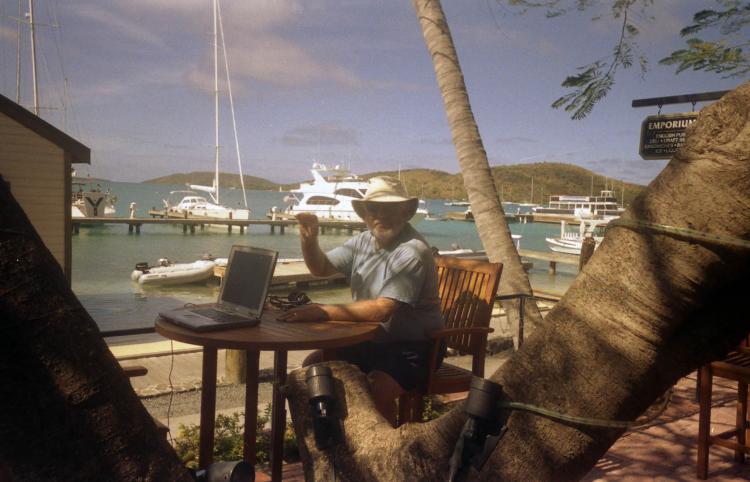 Staying Connected
Staying Connected
While cruising, we had to deal with isolation on several levels, and one of the most challenging for me was being so far away from family and friends. Aboard Gyatso, we took advantage of communications technologies to stay connected and also to receive important weather forecasts, news, and even work remotely while transitioning away from busy careers. I would regularly do video or voice calls back home via Skype. When reminiscing about it with my mom recently, she recalls how amazing it was for her to be on a video call with me while I unpacked my latest haul of fresh produce from the local market in Siracusa, Italy.
During the covid-19 crisis, we are now using smart phones, FaceTime, Zoom, Google Hangouts, or social media to stay virtually connected with each other. It’s not as good as being there in-person, but it helps.
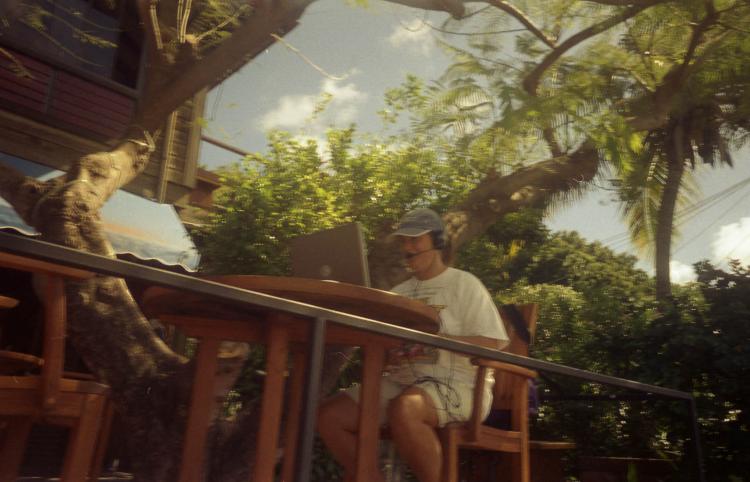
Staying Informed but avoiding information overload
Tracking weather forecasts and other emergency alerts while cruising made all the difference for a safe passage. When sailing offshore to the Caribbean and then across the Atlantic in 2006 and 2007, we installed satellite phone technology onboard to download weather information, send and receive emails, and even make emergency calls. We also had a single sideband radio, and although reliable, it was an older model and did not have a modem, hence the need for a satellite phone. We used the SSB for twice daily check-ins with the rest of the ArcEurope Rally fleet that turned out to be important for boosting our morale and confidence during the ocean crossing.
We decided not to sign up for personalized weather routing, choosing to use the information provided by the rally headquarters and what we could download and interpret ourselves onboard. We were the only boat with a double-handed crew in the fleet and needed to be careful about information overload given that one of us was required on deck operating the boat at all times.
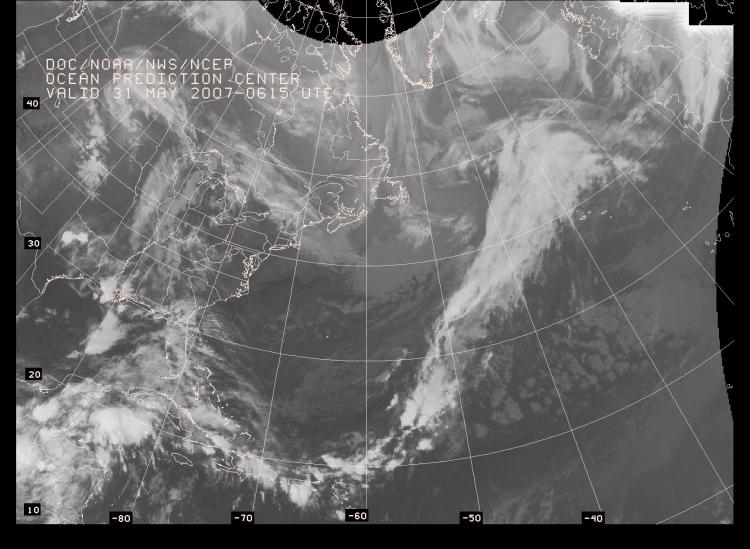
Now we are doing our part by staying home while following the news and regular briefings about COVID-19 as it spreads across the globe and in every state in the U.S., including here in Maryland. As with weather information while sailing, I’m trying to get just enough information to stay informed but not get overwhelmed. It’s difficult to find the right balance, but when I start feeling overly anxious or stressed, I find myself cutting back on live television news and briefings and relying more on print versions of local and national newspapers delivered to our doorstep every day.
Learning to live in close quarters
We still have the hand-made rug we purchased in Portugal for the cabin sole on our Tayana 37. At 6.5 feet by 2 feet, it represents the physical space constraints while living aboard. We were lucky to have a separate sleeping cabin, galley, nav station, and bimini-covered cockpit to carve out our own space when needed. Our greatest tests were when we spent extended periods in a port during the off season. But on the boat, if ever things felt too closed in, it was just a few steps up the companionway to be surrounded by the vastness that living on the water brings.
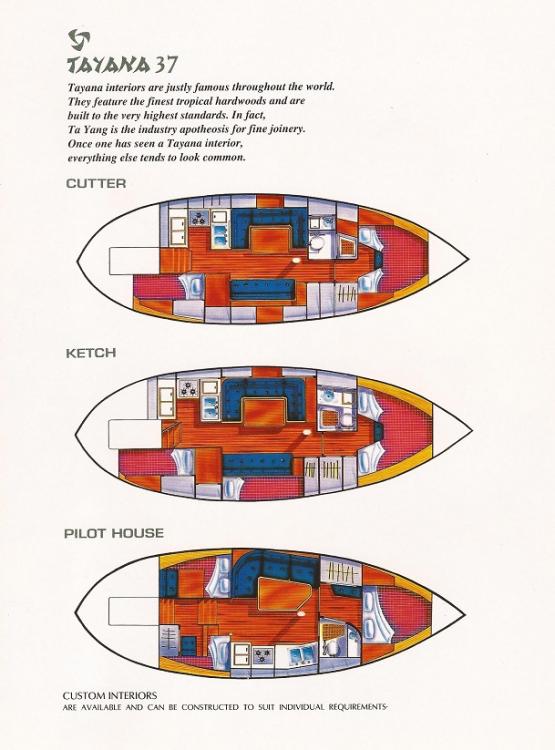
We now find ourselves drawing on our sailing experience during this period of self-isolation in our house, which is much less challenging in many respects. But with the current situation, there is an undercurrent of anxiety and fear that presents its own challenges. One way we cope is by giving the other person the personal space they need and then spending time together over a meal or working crossword puzzles.
Exploring other interests
Another way we coped with living in isolation was to pursue personal interests that we didn’t have time for with our busy shore-based lives. For David, it was reading about and researching topics of interest, such as Phoenician history while we were sailing in the Mediterranean. For me, it was finding time to write and pursue photography. I started blogging while we were sailing, something I am inspired to do again while riding out the current pandemic at home.
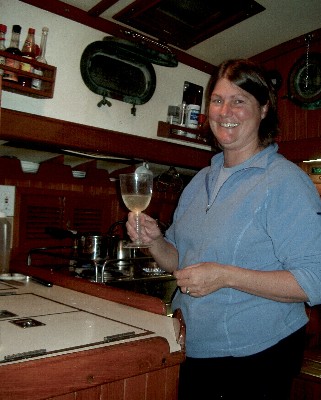
I also enjoyed shopping in local markets and then cooking onboard. While spending the winter in Gaeta, Italy, we were one of only two foreign cruising boats in the marina but had access to incredible local markets and the shops on a narrow street called via Independenza. For Christmas that year, David gave me Marcella Hazan’s The Essentials of Classic Italian Cooking. Not only are the introductory chapters a good read, but following the recipes while living in Italy was a great way to learn more about Italian cuisine. It wasn’t until the author’s death in 2013 that I learned how well respected she was among chefs and food writers, making my self-study seem all the more worthwhile.
I am lucky to have a job where I was already set-up to work remotely before the coronavirus pandemic, but even so, I keep telling my colleagues that this is really hard. I continue to work full-time, but all of my usually busy work-related travel schedule has been cancelled through at least November. Staying home has given me more free time, and I find myself turning again to other interests like cooking. There must be something to this particular interest in times of crisis, given the number of posts I have seen on social media of people baking sourdough bread and other goodies during the COVID-19 pandemic.
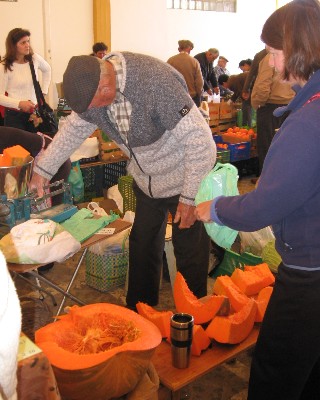
Adapting to a new way of provisioning
Another handy skill I learned while cruising was shopping for and handling groceries in an entirely different way than I do when living on land. Whenever we arrived in a new port, we had to figure out from scratch where to find provisions like fresh bread, fruits, and vegetables. In a blog entry from Marmaris, Turkey in March 2010, I referred to these outings as “hunting and gathering for provisions.”
Reading it again reminded me of the many enjoyable foodie adventures we had in ports while cruising. These outings for provisions typically involved developing a game plan to visit a number of different shops or fresh markets to replenish our onboard supplies. Before a long passage or in areas where we weren’t sure what provisions might be available, we would plan to bring onboard supplies to last for several weeks to a month and then hope to supplement this with fresh, local foods, if available.
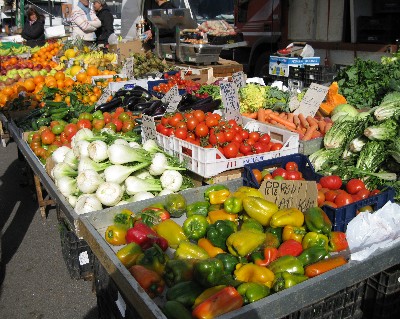
In recent weeks, I have found myself referring back to shopping lists and recipes and drawing on the provisioning skills I honed while living aboard. Our pantry is now well stocked with dried pasta, rice, beans, and fruit as well as nuts, baking supplies, and mixes for easy-to-prepare meals. I even have old standbys on-hand in case one or both of us falls ill or just doesn’t feel like cooking: peanut butter, boxed macaroni and cheese, cartons of soup, and ramen noodles. Our freezer is stocked with homemade soups and broths and frozen fruits and vegetables that are ready to heat and serve.
In addition to figuring out the lay of the land, one of the biggest frustrations with shopping while cruising was being in a place where I didn’t know the language and wasn’t familiar with local products. With the current coronavirus situation, it is way more stressful to worry about physical distancing, washing hands, and proper handling of groceries so as not to contract a deadly virus.
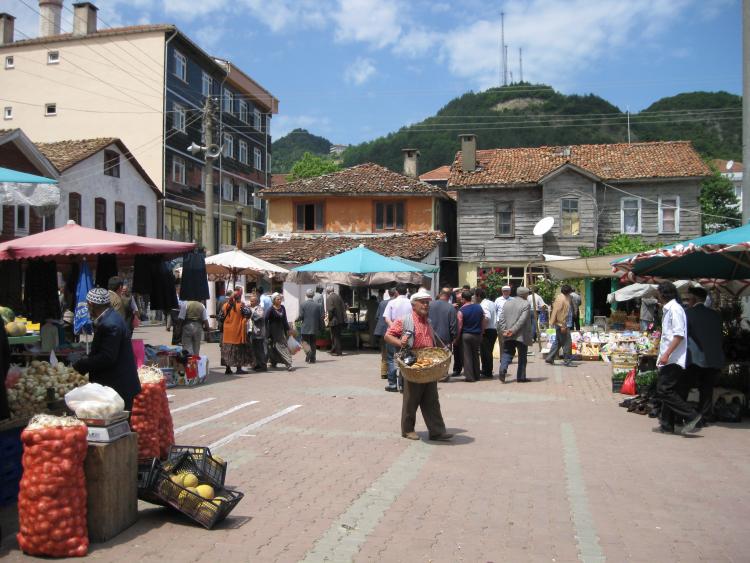
I am now charting out my stops for curbside pick-up and carefully planning the time of day and the places I feel most comfortable for grocery shopping every week or two. The most convenient supermarket where we shop most often is also the most stressful due to how busy it is. I am now transitioning into curbside pick-up there and am thankful for this service being available, but even this requires one week of advance planning to get one of the few time slots available. Another natural food market where I regularly shop is further away but less busy and has worked well for resupplying the organic and natural foods we tend to eat.
Handling of food safely
Bringing provisions onboard the boat in many of the places we visited required careful handling and processing to properly clean fresh foods or reduce the chance of a nasty cockroach infestation. Before getting in the dinghy or onto the dock if we were in a marina, I would remove everything from cardboard – a favorite place for cockroaches to lay eggs – or paper packaging and if necessary, transfer food to another container. Fresh fruits and vegetables would be washed carefully before storage, and then again before use.
With covid-19, the stakes are even higher because of the small chance of the virus surviving on surfaces after exposure to an infected person. I saw the YouTube video by a doctor from my hometown in Michigan showing how to properly unpack, clean, and put away groceries during the pandemic. Although scary to even imagine taking such precautions, it made me think more carefully about how to shop and handle food safely. I found this NPR article with practical advice: “No, You Don't Need To Disinfect Your Groceries. But Here's How To Shop Safely.”
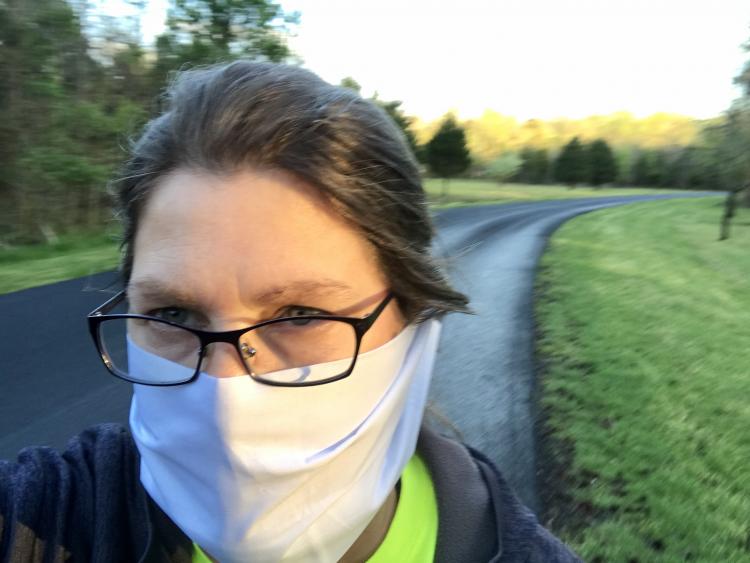
Staying safe and healthy
As we found while cruising, we also needed to come up with new ways to stay safe and healthy – both physically and mentally. When sailing offshore we had a firm rule about always being clipped onto the boat with a safety harness when up on deck. It was a simple but important thing to do to stay safe at sea. Our current safety guidelines are even more simple and straight forward, so when I’m feeling overwhelmed with everything going on, I try to keep what we are being asked to do in perspective.
Without a car, we used to walk for most errands while in port, giving us much needed exercise after long, sedentary periods on the boat. Now living ashore again, my regular walks in Quiet Waters Park are an opportunity to spend time in nature and clear my brain. This has also become a source of anxiety while trying to maintain physical distancing, but getting outdoors for exercise is a lifeline for me after being cooped up in the house for more than a month as of this writing. The benefits far outweigh any worries. I now wear a homemade mask to comply with the most recent CDC and local guidelines and have placed an online order for washable masks from someone with more sewing skills than me. Wearing a face covering feels awkward but is now required when going out in my community. It also seems to serve as a reminder to me and others I encounter along the way that these are not normal times.
Riding out the storm
When looking at the maps and graphs showing the spread of the virus, the number of confirmed cases, or even worse, the increasing numbers of deaths, I find myself reflecting on the times we had to ride out stormy weather while cruising. In those situations, we had no control over the fury that Mother Nature would sometimes unleash.
We learned to do careful route planning to avoid bad weather or just to stay in port for as long as necessary to let a weather system pass over. Whenever we took a risk or missed a good weather window and set out anyway, we usually regretted it. Over time, we became much more risk averse, not only for our own safety, but also because equipment often breaks or suffers more wear in bad weather, which can also be more expensive in the long run.
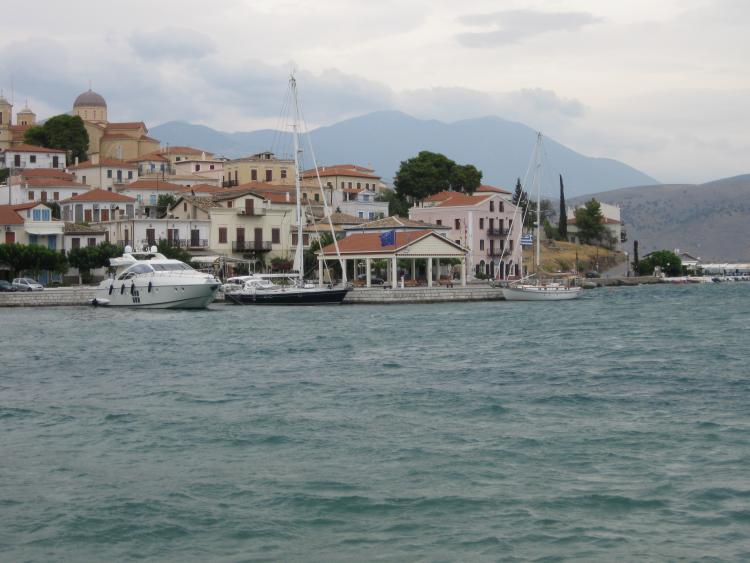
As with riding out a storm on a sailboat, I now find myself trying to make the best of a bad situation and holding onto the hope that this, too, shall pass. And after surviving my share of storms at sea (and in ports), I’m sure that those of us who are just asked to stay safe at home will also develop ways to cope and be at peace with waiting this out for the greater good of keeping ourselves and others healthy and safe.
When setting out on our Atlantic crossing, David and I had a heart-to-heart talk about whether we were up to the challenge. “We need to approach this as athletes do in a competition,” I said in an attempt at a pep talk. Unlike coastal cruising, bluewater sailing required that we treat it as a marathon, not a sprint. Given the models about the current pandemic, we are preparing ourselves for riding this out for as long as required.
About the Author: Lisa Borre and her husband David Barker cruised and lived aboard their 37-foot sailboat full-time for five years and part-time for another three and half years while sailing to the Caribbean, Mediterranean and Black Seas from 2005-2014. They are co-authors of The Black Sea, a cruising guide published in 2012 by Imray and the RCC Pilotage Foundation. www.gyatso.net
***Editor's Note: Lisa was our original "Bluewater Dreaming" columnist. The popular SpinSheet column has been presented for many years by M Yacht Services in Annapolis.
FIND MORE GREAT CRUISING STORIES HERE.
